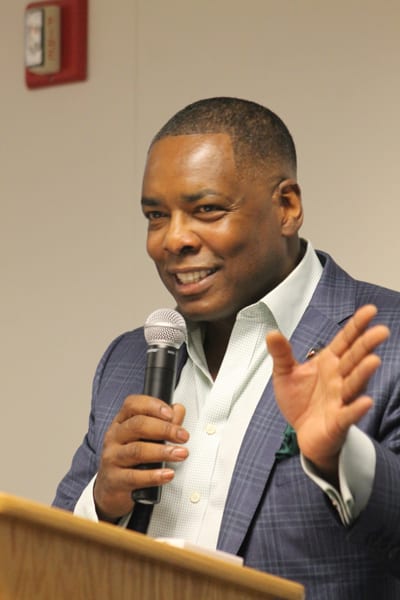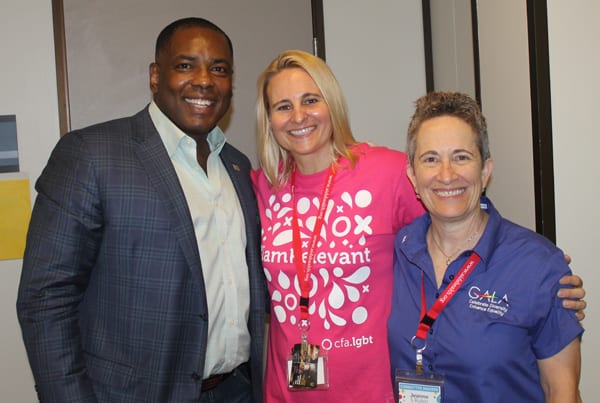Oversold conference on LGBT aging looks for ways to improve lives of elders

The second annual Summit on LGBT Aging packed the meeting rooms in one of Southern Methodist University’s Plano campus buildings on Saturday, July 23.
“In the 90’s, the idea of aging just didn’t resonate with many of us,” said GALA NTX President Jeannie Rubin in opening remarks to the conference. “We have become the LGBT aging community we never thought would exist.”
Rubin introduced the opening speaker, Plano Mayor Harry LaRosiliere.
While LaRosiliere wasn’t there to provide solutions, he was there to offer his support in “a city that believes everyone matters.”
He said that all elderly communities have concerns about affordable housing, their finances and health, but acknowledged the LGBT community has “an extra layer you have to contend with.”
“As a city, we will continue to foster our relationship” with the LGBT community, LaRosiliere said, “and find ways we as a community can collaborate.”
Aging Coalition founder Cannon Flowers said in the LGBT community, people on the margins are treated harshly. He defined the margins as those under 21 and those over 45.
“We discriminate in our own community,” Flowers said.
University of North Texas LGBT researcher Bart Poche gave some of the statistics. Currently, about 143,000 aging LGBT people live in North Texas. That number will grow to more than 200,000 over the next decade. Of those, some groups are more marginalized than others. One in three transgender people have been turned away from shelters and are four times more likely to live below the poverty line than the community in general, for example.
One problem addressed at the conference was discrimination in healthcare and housing. Some LGBT elders go back into the closet so they’re not discriminated by healthcare workers or in assisted living.
In a breakout session on improving the social lives of elders to improve their health and quality of life, lots of ideas emerged. Among the suggestions was a buddy program that was successful during the height of the AIDS epidemic. The program would pair a younger person with an older person to help with a variety of needs.
Flowers said during the break out that it’s the policy of the Coalition not to recreate or reinvent services that were out there. So he liked a suggestion at existing groups help create social events targeted at or inclusive of LGBT elderly. One example came from someone from DIVA, the volleyball organization. They recently held a volleyball event for people 45 and older that brought together former DIVA members and others who hadn’t played the game in years.
A breakout session on housing addressed problems faced by LGBT elders in assisted living and nursing care. While most facilities welcome LGBT residents, that welcome is often not much more than acceptance. No programming is available at any facility in the area that addresses LGBT interests.
Moderator Robert Emery noted that the Coalition is creating an equality index this year that will be sent out to all senior facilities in North Texas.
Other panels address transgender, legal, caregiving and legislative issues.
Mike McKay, former Resource Center CEO and current regional manager for the Peace Corps, said, “One thing we all have in common is we’re all aging.”
He summed up the conference with three takeaway ideas:
Change: Figure out how you can change to make your life better as you age.
Connect: Connect to your community by working together with others, through organizations, churches or friends.
Contribute: Whether that’s financially or with your time, especially on legislative issues in the upcoming legislative session.
A Tarrant County summit will be held in Arlington on Nov. 12.












